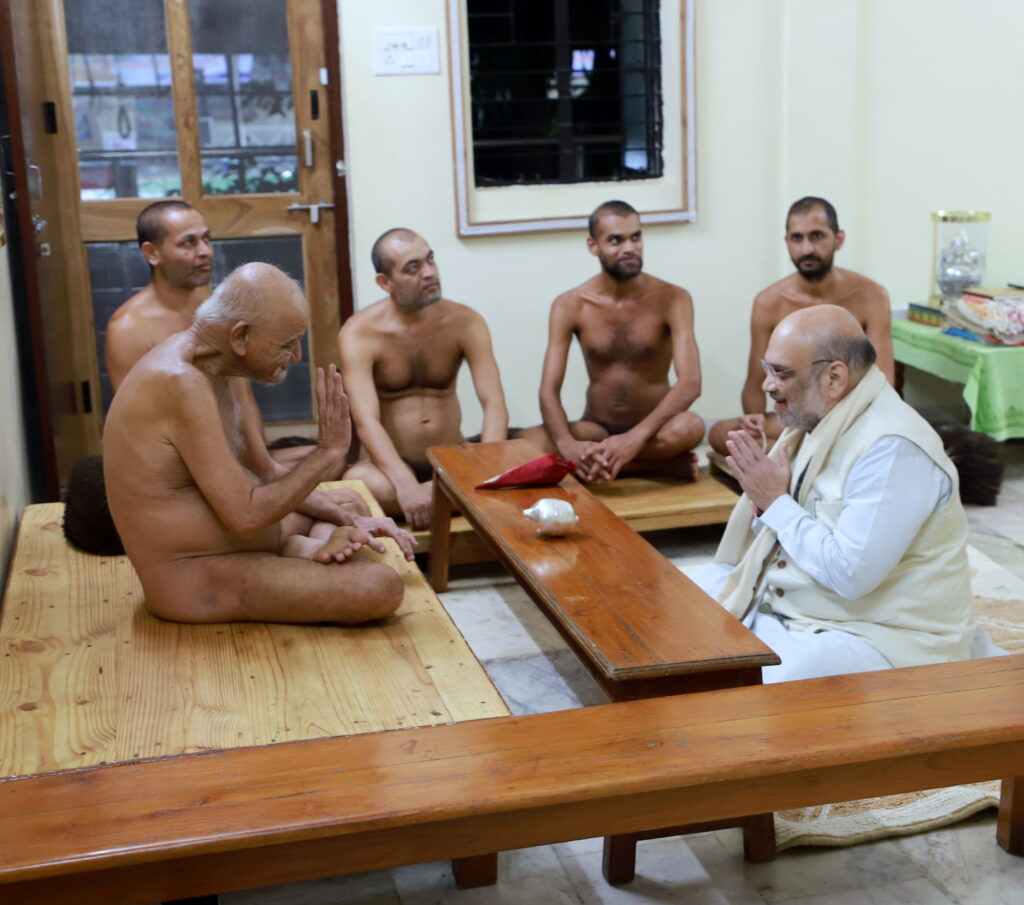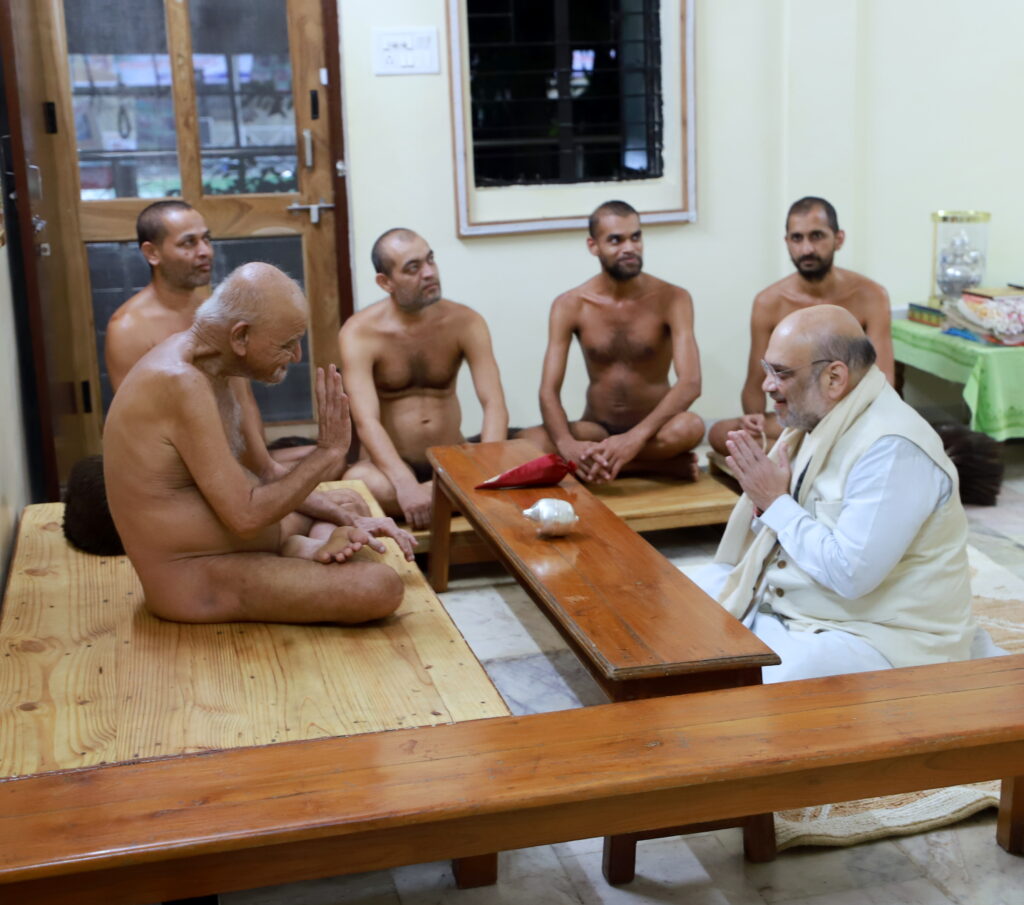


Renowned Jain seer Acharya Vidyasagar Maharaj attained samadhi in Chhattisgarh’s Rajnandgaon district. He died on Sunday after undertaking ‘Sallekhna’, a Jain religious practice involving voluntary fasting unto death for spiritual purification. He was 77.
Acharya Vidyasagar Maharaj attained Samadhi through ‘sallekhna’ at Chandragiri Teerth at 2.35 am, the statement said.
In the heart of Jainism, a religion known for its profound commitment to non-violence, truth, and asceticism, lies the practice of Sallekhana, a spiritual and deeply personal vow taken by some members of the Jain community. This ancient ritual, also known as Santhara, is a testament to the ultimate surrender, a deliberate and voluntary decision to embrace death through fasting, signifying the purification of the soul and the shedding of physical bindings.
The practice of Sallekhana is not embarked upon lightly. It is considered when a Jain monk or layperson perceives their life’s end approaching, whether due to old age, terminal illness, or other circumstances where the body can no longer serve the purpose of spiritual liberation. The decision is made in consultation with spiritual mentors, ensuring it is not an act of suicide, which is condemned in Jainism, but a final act of letting go, with awareness and acceptance.
The story of Vidhya Sagar, a revered monk and leader within the Jain community, who recently undertook Sallekhana, has reignited discussions about this ancient practice. His decision, marked by years of spiritual discipline and wisdom, highlights the profound courage, determination, and willpower inherent in such a choice. It is a salute to the unwavering dedication to the principles of Jainism and the ultimate pursuit of moksha (liberation).
The practice raises profound questions about the nature of life, death, and spiritual liberation. It challenges the conventional views of death and dying, presenting an alternative perspective where death is not an end but a significant spiritual milestone. This perspective is not unique to Jainism alone but offers a window into the universal quest for meaning and liberation found in many spiritual traditions.
However, the practice of Sallekhana is not without its controversies. In a world where life is often viewed as the highest value, the deliberate embrace of death for spiritual reasons can be difficult to understand. Critics argue about the ethical implications, while supporters see it as the ultimate expression of faith and detachment.
For those outside the Jain community, the practice of Sallekhana offers much to reflect upon concerning our values, beliefs about life and death, and the pursuit of spiritual liberation. It invites a deeper understanding of Jainism’s rich spiritual heritage and its contributions to the broader tapestry of world religions.
In conclusion, the practice of Sallekhana in Jainism, as exemplified by the courageous decision of Vidhya Sagar, offers a profound message of faith, detachment, and the quest for liberation. It is a testament to the strength of the human spirit and the depths of spiritual conviction. While it may not be a path that all would choose or dare to take, it commands respect and offers valuable insights into the essence of spiritual liberation and the ultimate journey of the soul.


